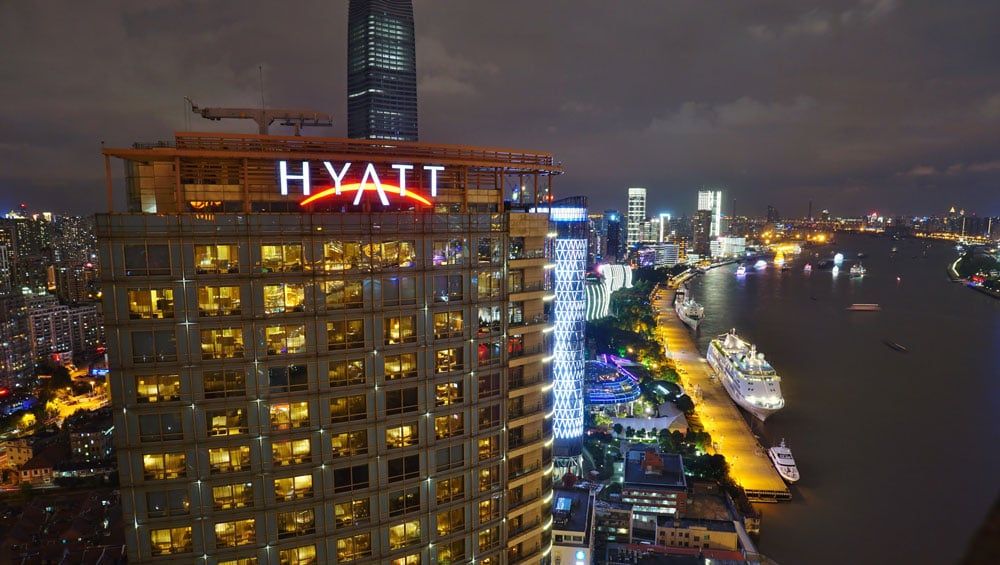 |
|
The hospitality industry is buzzing this week, with major players like Marriott, Wyndham, and Hyatt releasing their fourth-quarter earnings reports. Analysts are keenly focused on key performance indicators such as room night forecasts and revenue per available room (RevPAR) growth. These metrics offer crucial insights into the overall health and trajectory of the hotel sector, particularly in the context of ongoing economic uncertainties and shifting travel patterns. The reports will reveal how effectively these companies have navigated inflationary pressures, fluctuating demand, and evolving consumer preferences. This context makes Hyatt’s recent announcement even more significant. The news that Hyatt has agreed to acquire Playa Hotels & Resorts for a staggering $2.6 billion dramatically reshapes the landscape of all-inclusive resorts.
Hyatt’s acquisition of Playa Hotels & Resorts is a strategic move with several key implications for the company's future growth. The $2.6 billion deal, which includes approximately $900 million in debt net of cash, represents a significant investment that demonstrates Hyatt's confidence in the all-inclusive market segment. By acquiring Playa, Hyatt gains control of a portfolio of well-established resorts in prime locations across Mexico, the Dominican Republic, and Jamaica. This expansion directly complements Hyatt’s existing all-inclusive brands, Hyatt Ziva and Hyatt Zilara, significantly bolstering its market share and presence in these popular tourist destinations. Moreover, the acquisition provides Hyatt with the opportunity to secure long-term management agreements for its all-inclusive properties, securing revenue streams and enhancing brand control. This strategic long-term approach differentiates Hyatt from competitors who might rely more heavily on short-term contracts or franchises.
Beyond the immediate expansion of its all-inclusive portfolio, the acquisition of Playa unlocks access to valuable distribution channels. Playa’s existing partnerships with ALG Vacations and Unlimited Vacation Club provide Hyatt with established avenues for reaching a wider customer base. This synergistic integration is crucial for driving increased bookings and revenue. By leveraging these existing channels, Hyatt can effectively promote its expanded portfolio to a broader audience, potentially attracting new customer segments and increasing market penetration. This strategy is particularly relevant in the increasingly competitive all-inclusive market, where capturing market share requires efficient and effective distribution strategies. The integrated platform allows for cross-selling opportunities, targeted marketing, and bundled packages which could boost overall customer satisfaction and revenue generation.
The impact of this acquisition extends beyond Hyatt's immediate financial gains. The deal sets a precedent for future mergers and acquisitions in the hospitality sector, potentially signaling a trend towards consolidation among all-inclusive resort operators. Competitors will be closely monitoring the success of this integration, analyzing Hyatt's strategy and its financial performance in the coming quarters. The deal’s success will largely depend on Hyatt's ability to seamlessly integrate Playa’s operations, maintain the existing high standards of customer service, and effectively leverage the combined strengths of both companies. Successfully navigating the cultural integration of two distinct organizations is a key challenge, requiring a thoughtful and strategic approach to human resources and operational management. The financial markets will be watching closely to see how effectively Hyatt integrates Playa's operations and the immediate impact on profitability and RevPAR.
In conclusion, Hyatt's acquisition of Playa Hotels & Resorts is a pivotal moment in the hospitality industry. The deal signifies a strategic investment in the all-inclusive resort sector, driving significant growth for Hyatt and shaping the future competitive landscape. With the combination of Playa's established presence and Hyatt's strong brand recognition, the potential for synergistic growth is substantial. The upcoming release of Q4 earnings from major hotel companies adds another layer of complexity and interest, with analysts meticulously scrutinizing the financial performance of the industry as a whole. The long-term success of this merger will depend on several factors, including seamless integration, effective marketing, and strategic operational management. The next few quarters will provide crucial insights into the long-term consequences of this significant acquisition.
Source: Hyatt Announces $2.6 Billion Resort Acquisition; Marriott Earnings Due
